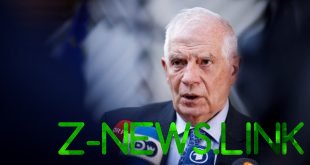
Exiled former presidential candidate Tikhanovskaya met with Stephen Biegun in the Lithuanian capital Vilnius on Monday to discuss “strengthening democracy and human rights in the country.” Tikhanovskaya’s status as an “opposition leader,” now cozy with the US as perhaps a hand-picked leader, has led some to bill her as Belarus’ version of Venezuela’s Juan Guaido. Conversely, her meeting with Biegun reveals that she is actually not a US State Department asset and, similarly to Guaido in at least one way, is also not a clever political operator.
Tikhanovskaya’s willingness to turn to Washington has accomplished several things: it has drawn serious attention from Moscow, it has given credence to Belarusian President Alexander Lukashenko’s claims that outside forces are trying to topple the country and, if it hasn’t already, it certainly will create friction within an already disunited opposition.
Russia’s Foreign Minister Sergey Lavrov pointed out on Monday that “there are many questions about the legitimacy of this Coordination Council” started by Tikhanovskaya, which has deemed itself the country’s legitimate authority.
According to him, “Many of its members learned post factum that they were included in it. Nobody consulted them. Some who were included in it have already dropped out.”
And most relevant to Moscow’s geopolitical interests, Lavrov pointed out, “Tikhanovskaya published very different goals for the council on her website, which were later deleted. The choice of the members of the council raises questions regarding their attitudes towards relations with the Russian Federation.”
This ambiguity from Tikhanovskaya and her camp, who seem to be easily swayed by the last group to give them an ear, is of particular concern to Russia, due to its serious strategic claims in Belarus, and Moscow would deem it unacceptable if Belarus fell under a Western umbrella. The two countries are not only part of a single Union State and founding members of the Customs and Eurasian Economic Union, but are also deeply connected in defense.
Russia has two strategic military outposts in Belarus: the ‘Volga’ radar station and the 43rd Vileika communications center of the Russian Navy, which are of great strategic importance to Russia. Without going into too much detail, these outposts provide key intelligence about any aggression coming from the West; losing them would not only endanger Belarus, but also Russia.
If Belarus were to ditch the Collective Security Treaty Organization (CSTO) in favor of joining the North Atlantic Treaty Organization (NATO) in an extreme case, the chances of this going down well in Moscow are nil.
In this way, Tikhanovskaya is only serving to place this great trust between Moscow and Minsk firmly in the hands of Lukashenko, who, until this point, has not enjoyed Russia’s unequivocal backing. This is for the same reason mentioned before – she has allowed herself to be pigeonholed as a Western agent, which will no doubt benefit and entrench Lukashenko’s position.
The Belarusian opposition, though Washington has tried to ideologically penetrate it for years with varying degrees of success, is indeed spontaneous. There are serious contradictions in Belarusian society that deserve intense consideration by the Belarusian people, though, I would argue, these are not insurmountable challenges and can be solved by means of reform – not regime change.
Belarus is an extraordinarily well-run country, with stability and relatively low inequality, and has experienced several periods of impressive economic growth –owed to its planned economic model– much of this occurring as other countries in the post-Soviet world suffered much longer. While the technocrats that run the basic institutions are impressively competent, things have stalled out over the last decade, in what is an obvious rot at the top, i.e. Lukashenko.
For example, shortly before the 2010 presidential election, Lukashenko promised every citizen a salary of 500 US dollars per month (reminiscent of a kid running for class president promising a jacuzzi in the cafeteria) which contributed to the country’s currency tanking and foreign currency reserves left depleted. This, coupled with the recession of 2015, triggered by a drop in oil prices that tanked the Rusisan economy that same year, has cast a shadow over Lukashenko’s last decade as president, as the standard of living in Belarus has seen scant improvement in that time.
More recently, despite having a competent health ministry at his back, Lukashenko called the coronavirus a “psychosis” in March and initially refused to take the virus, which infected over 70,000 Belarusians, seriously, before catching it himself. Lukashenko has long been something of a bad joke to Belarusians, this just being the last example.
Those that oppose him, however, are not unified in any ideological sense, only set together on the fact that they want him gone. Broadly, they are not Nazis, as some American leftists have cast them, though certain radical elements obviously exist (as they always do). They are mostly young, misguided liberals, politicized by the country’s lack of economic prosperity, moderately high unemployment and low per-capita GDP.
Some of these young activists want to be more like Russia, which they believe has more freedom and political openings, and others, especially expatriates who left to find better economic opportunities, would like to see Belarus more Westernized. Older Belarusians remain largely skeptical of Western interference in their internal affairs and are probably poised to fall in line behind their embattled president if things get worse, despite their lack of affinity at this particular moment – something he may soon exploit.
None of what’s going on, however, suggests that the opposition is a State Department cutout or part of Washington’s covert actions – Belarus is not Ukraine; the protests are peaceful and guns aren’t being dumped into the country. Protesters’ demands are limited mainly to Lukashenko’s exit, not regime change, and the organized opposition that has presented the most wide-ranging demands is, as the Russian foreign minister pointed out, questionable even in its legitimacy.
Tikhanovskaya is not the Belarusian Juan Guaido, but her blunderous camp may have just made the youth-led wing of the opposition look totally incredulous, and handed over the narrative to President Lukashenko, with their reach-out to Washington for guidance.
Think your friends would be interested? Share this story!
The statements, views and opinions expressed in this column are solely those of the author and do not necessarily represent those of RT.
© 2020, paradox. All rights reserved.





